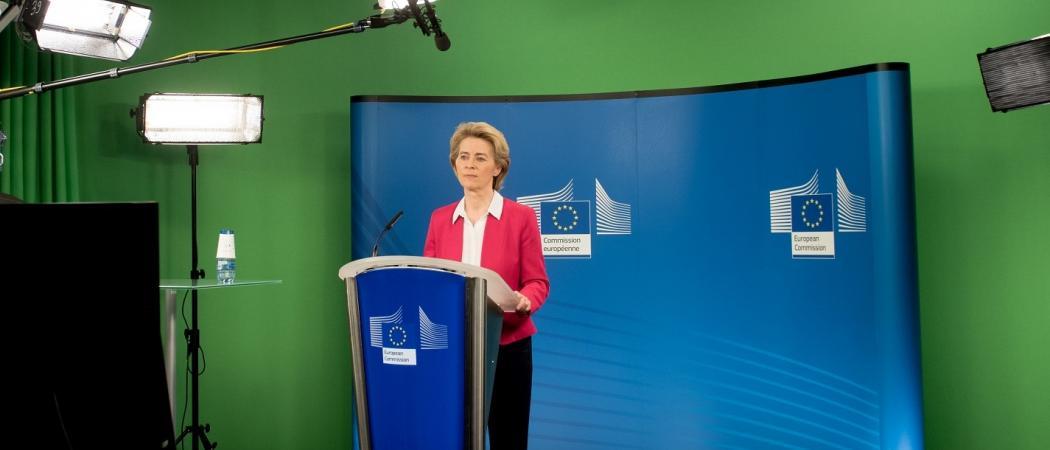Horizon 2020 money to fund switching production lines to make medical products, the development of digital tools and studies of pan-European cohorts

Ursula von der Leyen, Commission president. Photo: European Commission.
The European Commission has launched a second coronavirus rapid research call, with €122 million to invest in repurposing production lines for the manufacture of medical supplies, the development of medical technologies and in applying artificial intelligence to develop decision support systems and digital tools that can improve detection, surveillance and patient care.
The call, which is part of the EU’s €1.4 billion coronavirus global response initiative, is intended to complement the earlier Horizon 2020 call backing R&D into diagnostics, treatments, and vaccines. The aim is that there will be both manufacturing facilities and evidence on how any products delivered as a result of the first call should be applied.
The five opportunities under the new call, open until 11 June, invite research into the repurposing of existing manufacturing capacities for medical supplies; development of medical and digital technologies; assessments of the behavioural, social and economic impacts of the pandemic; and studies of pan-European cohorts of COVID-19 patients.
The biggest slice of funding is €56 million for medical technologies, digital tools, and artificial intelligence analytics for use in diagnostics, environmental virus surveillance systems, telehealth, personal protection equipment, and COVID-19 data aggregation.
€23 million is available for the repurposing, adaptation and ramp-up of existing production lines. Projects can receive between €5 and €6 million to develop flexible 48-hour response capacity at scale to cope with sudden spikes in demand for strategic medical products.
Research into the impact of pandemic on human behaviour and social dynamics, with a special focus on mental health and health inequalities, will receive €20 million.
The same amount has been allocated for population-based cohort studies that aim to rapidly understand risk and protective factors in infection, clinical manifestation, therapeutic response, and clinical outcome. The remaining €3 million will fund existing EU and international cohorts relevant to COVID-19.
The cohort studies can be prospective studies gathering data going forward, or retrospective cohort studies, which look at data already collected.
The overall goal is to develop products and other outputs available and affordable for all, in line with the principles of the coronavirus global response. The commission will include rapid data-sharing clauses in grant agreements, to ensure that findings and outcomes can be put to use immediately.
An online information session on the call will be held by the commission at 2pm CET tomorrow.





 A unique international forum for public research organisations and companies to connect their external engagement with strategic interests around their R&D system.
A unique international forum for public research organisations and companies to connect their external engagement with strategic interests around their R&D system.